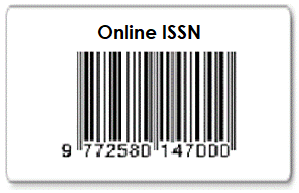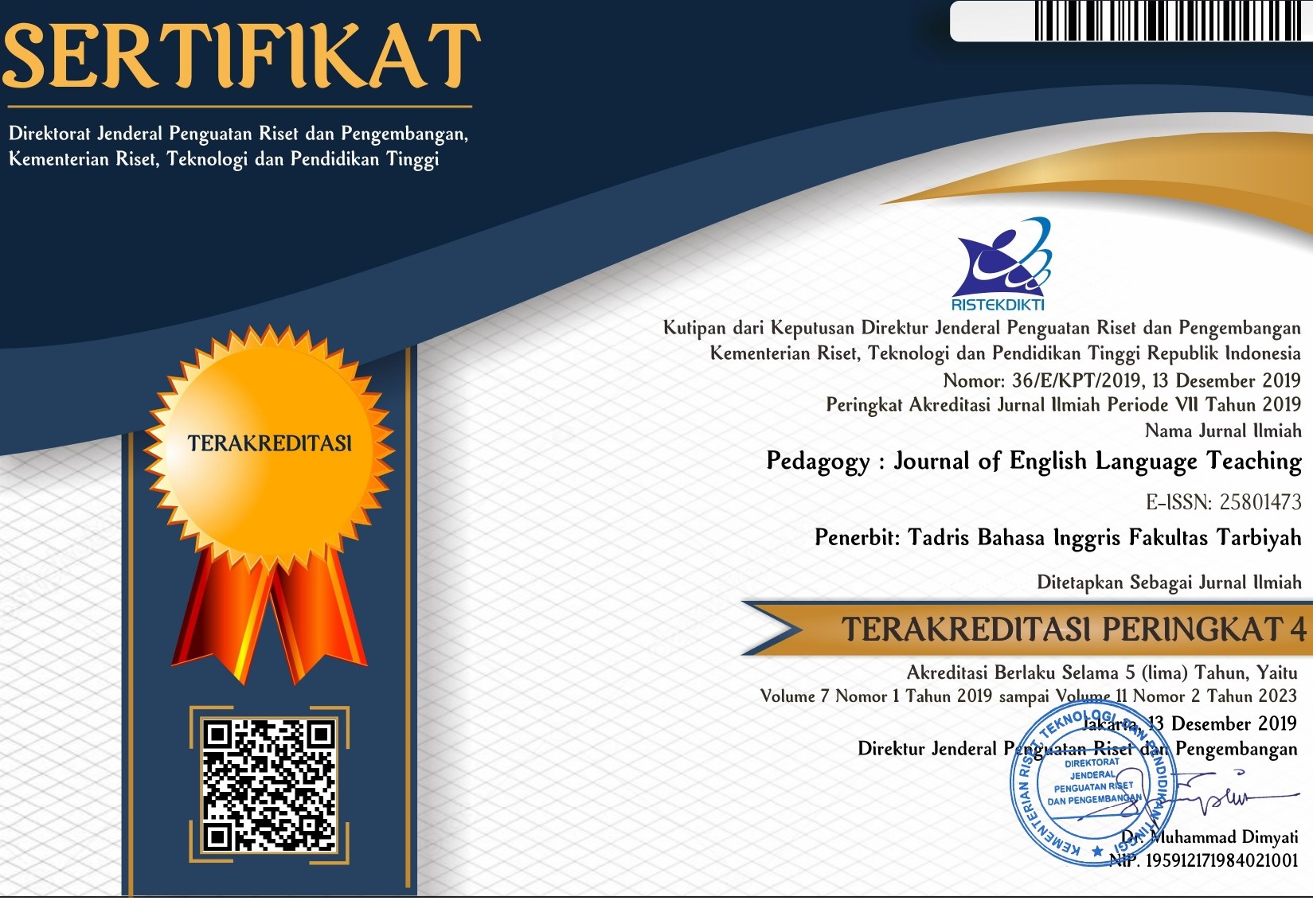Students’ Problems of Dealing with Lecturer’s Indirect Corrective Feedback on Argumentative Writing
DOI:
https://doi.org/10.32332/pedagogy.v6i2.1301Keywords:
argumentative writing, Indirect corrective feedback, problems of writingAbstract
This study was aimed at describing the problems the students encountered while dealing with the lecturer’s indirect corrective feedback on their argumentative writing. This study adapted qualitative approach. The participants involved were 20 fifth semester students of Writing III subject in Jakarta Muhammadiyah University. The study conducted in the period of September-October, 2017. The data were collected using interview and documentation. The data were analyzed through Miles and Huberman Model. The results of study showed that students faced problems with: 1) the writing components such as writing content, writing organization, vocabulary, grammar, and mechanics; 2) Writing plan namely, lack of writing preparation and of learning management; 3. Writing process such as ineffective teamwork, big-size class, no background knowledge of the teacher-assigned topics, incomprehensible teaching materials, unreadable and hard to respond feedback, and lack of motivation. The study concluded that students still faced many problems generally with learning writing and specifically of dealing with the feedback and there should be changes of strategy from the feedback to perform better writing progress.















